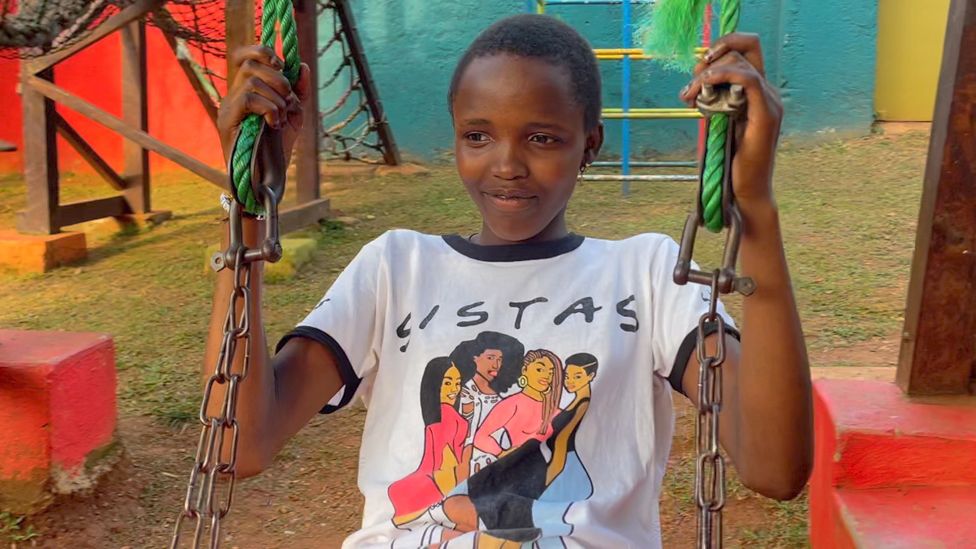-

-
-
Loading

Loading

14-year-old Dorcas Cherop faced a bleak future when her family was informed that she needed a year-long treatment for bladder cancer in Uganda. While the medical care at the Uganda Cancer Institute (UCI) was largely free, the expenses associated with multiple trips to the capital city, as well as finding accommodation for the hospital visits, posed a significant challenge. Dorcas, who hails from Kapchorwa in eastern Uganda, comes from a farming family that couldn't afford the transportation costs. The ordeal began when she was diagnosed with cancer at the age of 11 in 2020. Even during the testing phase before the treatment commenced, Dorcas and her family had to endure grueling fortnightly journeys to see the doctors. The situation became so dire that the family considered giving up and returning home due to their financial constraints. Their funds had depleted, and witnessing Dorcas in pain during the seven-hour trip to Kampala and back was heart-wrenching, as her aunt Stella Chepchirir admitted. Unfortunately, their predicament was not unique in Uganda. In 2021, it was estimated that one in three children with cancer abandoned their treatment due to the hidden costs involved. Dr. Joyce Balagadde-Kambugu, the head of pediatric oncology at UCI, explains that like Dorcas, many children with cancer come from rural areas. About 80-85% of the children receiving cancer treatment at the institution come from peasant families with a monthly income of less than $3. According to Dr. Balagadde-Kambugu, the treatment abandonment rate has been alarmingly high, reaching almost 50% in some cases. In 2021, approximately 30% of the cancer patients admitted to UCI completed their treatment, indicating a significant dropout rate of around 700 children out of the 1,000 admitted. Ideally, patients from different parts of the country should stay in Kampala for six to seven months, and sometimes even years, for their cancer treatment. Often, families resort to makeshift arrangements between appointments, such as camping in hospital corridors and sleeping on cold floors with only a fleece blanket for protection. These cases, referred to as "floor cases" by hospital staff, additionally compromise the children's health, making them vulnerable to diseases like malaria and diarrhea. To address this issue, the pediatric cancer unit has partnered with Bless a Child Foundation (BCF), a charity that offers free accommodation to children with cancer during their treatment. Dorcas's family, who had originally given up hope due to the financial burden, received assistance when they were put in touch with BCF through a contact at UCI. BCF initially accommodated up to 10 children in one house in Kampala when it was established in 2010. It has since expanded to four homes in different locations, each capable of accommodating about 100 children and one caregiver. In addition to providing shelter, BCF also offers meals, an in-house teacher, psycho-social support, and transportation to and from hospitals for treatment. The impact of this initiative is already apparent, with the dropout rate decreasing dramatically to 9% in the past year, according to Dr. Balagadde-Kambugu. While it is not possible to attribute the entire improvement solely to the shelter provided by BCF, she believes it has played a significant role. For Dorcas, the foundation has made a tremendous difference in her life, alleviating her pain and giving her hope for the future. She expresses gratitude towards the foundation for providing her with a new lease on life. Currently, Dorcas is back home and will return to Kampala in December for a check-up to determine if she is in remission.